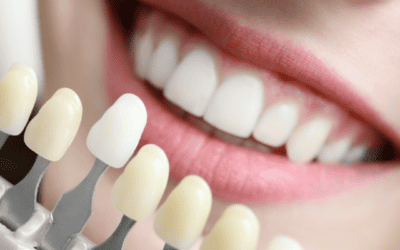International Women’s Day is coming up on the 8th March, so let’s talk women’s health.
A report by the Australian Institute of Health and Welfare, stated that 1 in 2 Australian females have a chronic disease. The most commonly reported by women were mental health issues (19.2%) and cardiovascular disease (18.6%). At the other end of the spectrum we have diabetes (4.6%) and cancer (1.5%). How do these affect the health of our mouths? Let’s have a look.
Mental Health Issues – Stress
Many women feel under a lot of stress. A study by Jayne Hailes reported that around 40% of the Australian women they surveyed had been professionally diagnosed with depression or anxiety. Women aged 18-35 were the most anxious of all the age groups. Nearly half of the women surveyed reported that on several days they can worry excessively, become easily annoyed or distracted and have trouble sleeping.

Nearly half of women surveyed said they
had trouble sleeping.
How stress affects our mouth
With relation to our oral health, too much stress can lead to problems with our teeth, gums and even areas outside of our mouth.
Stress can cause mouth ulcers and cold sores. There are other causes of ulcers so if you are suffering from many ulcers at once, frequently have ulcers or have an ulcer that’s not healing within 10 days, please schedule a visit to your dentist. Iron deficiency is a common cause of ulcers in women.
Stress can also cause us to tense the muscles around our shoulders, face and neck, leading to headaches. We can grind or clench our teeth, which a lot of the time we do subconsciously, or even in our sleep. This can cause wear and damage to the teeth, and even affect the jaw joint, which can be very painful. Getting a proper diagnosis and treatment is important. The treatment can be as simple as some exercises for your jaw, some treatment from a physio and/or a mouthguard to help protect your teeth from the effects of grinding.

Stress and anxiety can cause problems with
cold sires and ulcers. In addition, medication
used to treat depression and anxiety can
cause a dry mouth.
Depression can also lead us to neglect basic habits such as healthy eating, brushing and flossing. Neglecting our oral health can lead to many problems from tooth decay and gum disease.
What should I tell my dentist?
Telling your dentist about the medications you take for depression and anxiety is very important. Many of these medications can lead to a dry mouth. Saliva is so important for protecting your teeth and gums. It contains many substances, from those that are antibacterial, to ones that can actually stop and even reverse early tooth decay. Those with dry mouth are much more likely to suffer from tooth decay and gum disease, and these diseases can progress at an alarmingly rapid rate if left unchecked. Your dentist can help with keeping a close eye on things, and also prescribing or suggesting products that can help.
Cardiovascular Disease
The health of your mouth influences the health of the rest of your body. Inflammation and bacteria in your mouth can affect your heart health. This is because the bacteria and the inflammatory toxins travel through the bloodstream to the heart. In addition, if you already have heart disease, medications for heart health can affect your mouth. Make sure you give your dentist a complete list of the names and doses of all medications you are taking (including complementary medications). This will help the dentist decide on the best treatment for you, including which medications/anaesthetics are safe for you.
Some doctors and surgeons seek dental clearance from the dentist before they proceed with treatment. They want to ensure the mouth and body are infection free before surgery.

Many medications can have implications for
your dental care.
Diabetes
The link between diabetes and oral health has been known for a long time. Diabetics are more prone in general to having infections. This includes infections of the mouth. We have had patients who were unaware they were diabetic, but following a request from the dentist to get this checked out they were diagnosed. This is because the dentist noted many unusual infections of the mouth, including severe gum disease that wasn’t responding well to treatment.
What’s more, it’s not just diabetes that causes problems with the gums. Having gum disease in the first place can also play havoc with your sugar control if you are already diabetes. This is why it’s even more essential for diabetics to get regular dental check-ups.

A healthy smile is part of our overall health.
Cancer
Seeing your dentist after your cancer diagnosis lets your dentist assess your oral health in relation to the proposed cancer treatment. Some treatment may need to be carried out before your cancer treatment begins, either by your dentist or a specialist.
Chemotherapy and radiation therapy slow down the growth of fast growing cells. The cells that line the mouth are some of the fastest growing. For this reason, chemotherapy and radiation therapy slow down the ability of the lining of the mouth to heal itself. In addition, these treatments also affect the balance of bacteria in the mouth. For all these reasons, those undergoing treatment for cancer are more likely to have sores in the mouth, infections and tooth decay.
If radiation to the head and/or neck region is proposed, this can have a long-term affect on the jaw bones. Before treatment, your dentist should do a thorough check and get any treatment done that could pose a problem later.
Final thoughts
If you are feeling nervous or suffering with anxiety regarding your dental care and/or medical condition, please speak with your dentist and/or doctor. They can help with strategies and possible medications to help. Don’t let a fear put you off seeking treatment as this will be more detrimental to your health.
Call our friendly team on 0732111155 to find out more.


